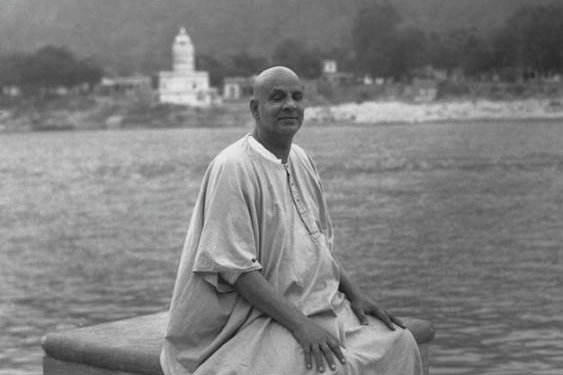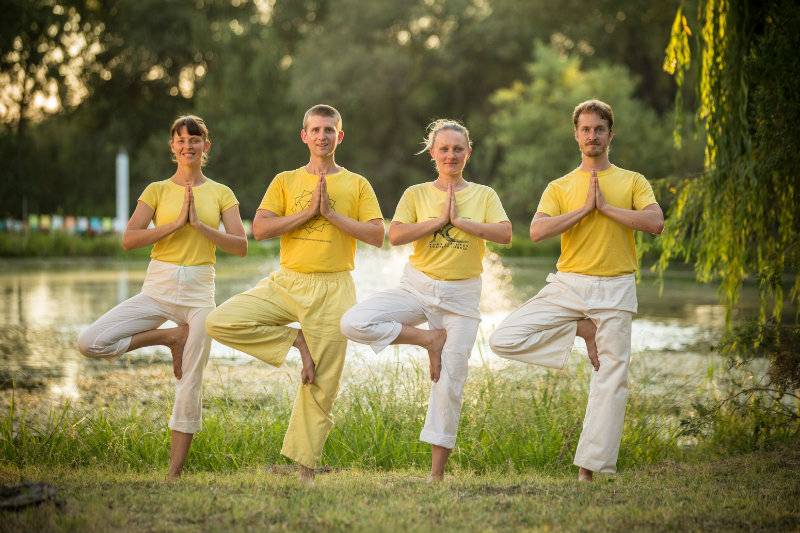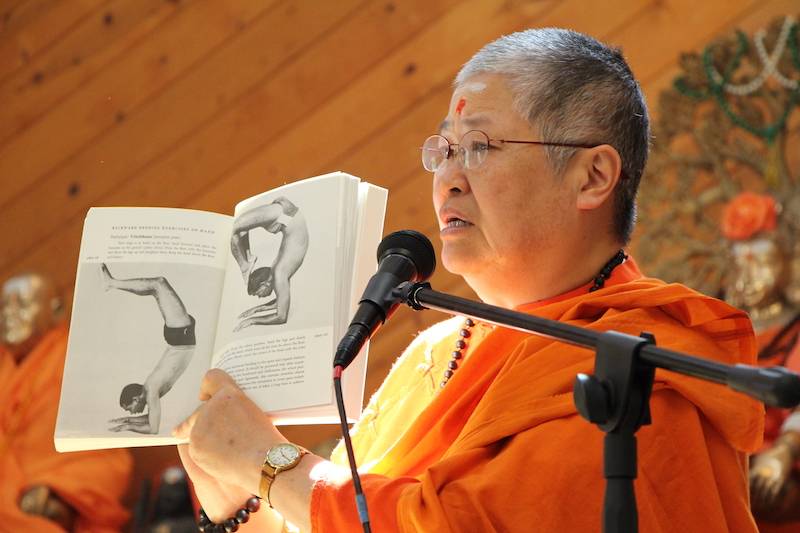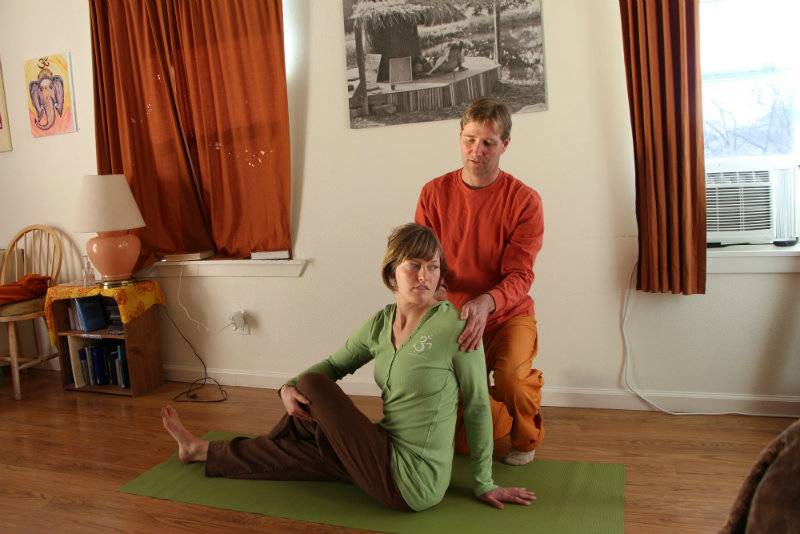How to Meditate for Beginners
by Swami Vishnudevananda
Now just for a few minutes, dive deep into that silence. Hear the silence, see the silence, taste, smell, and touch the silence.
The last moment of your life, you’ll hear that beautiful silence, that melody of your soul, the sound of your own soul, the music of your soul. That Godhead, that peace will come to you. You will leave your body with full awareness and peace and shanti. Now dive deep. Hear the eternal sound of Om in silence, and we’ll keep silence just for a few minutes, just a few minutes.

Play of the Mind
You sit for three hours with eyes closed. Does the meditation come? Sitting with closed eyes like a statue is not going to bring you anything as long as the play is still going on inside. Continuously the play is going on; meditation is a continuous de-hypnotizing of our identity with this play, this play of the body and mind.
Meditation is a continuous dehypnotizing of our identity with this play.
Meditation Starts with Detaching from the Mind
Meditation starts in your day-to-day life. If you cannot detach yourself from the day-to-day activities, you cannot close your eyes and meditate. If we have continuous identification with our activities and nature, when we sit, the same activities will go on. Even if you keep your eyes closed, your hands clasped, your feet crossed, still the mind is not checked.
The mind will play the part and you are going to identify with the mental play. Whether you are going to work with your physical body and identify with your physical body, or if you keep the physical body still and close the eyes, it makes no difference. The mind will play its part in all conditions.


In order to detach and keep the mind away from the day-to-day portion so that when you sit for meditation you will be able to withdraw the mind, you must take the first step which is called Karma Yoga. Karma Yoga is the fundamental step on which your meditation practice is built. No meditation is possible without Karma Yoga; it doesn’t matter what else you do.
Excerpt from the book: Swamiji Said – A Collection of Teaching by Swami Vishnudevananda in His Own Words
Follow us
[et_social_follow icon_style=”slide” icon_shape=”rounded” icons_location=”top” col_number=”2″ counts=”true” counts_num=”0″ outer_color=”dark”]
Subscribe to the Yoga Farm Newsletter for regular updates, articles, and upcoming events.




0 Comments